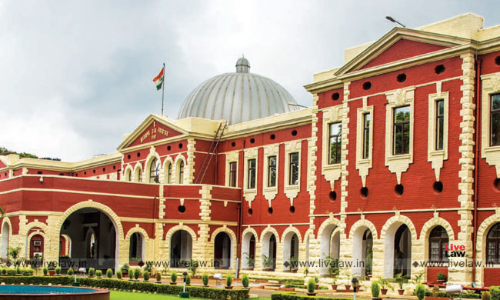
The Jharkhand High Court has reiterated that it is settled legal position that the Appellate Court could enhance the compensation even if an appeal or objection has not been filed in order to achieve the object of awarding just and fair compensation.
The single-judge bench of Justice Gautam Kumar Choudhary while allowing cross-objection for enhancement of the insurance claim noted the above as the same was strongly contested by Insurance Company on the ground that it has been filed after period of limitation.
To this, the Court noted that whether a cross-objection can be considered after the period of limitation or not has been answered in Mahadev Govind Gharge & others Vs. The Special Land Acquisition Officer, Upper Krishna Project, Jamkhandi, Karnataka , 2011 Latest Caselaw 394 SC which, as the excerpt may sump up states:
"Strict construction of a procedural law is called for where there is complete extinguishment of rights, as opposed to the cases where discretion is vested in the courts to balance the equities between the parties to meet the ends of justice which would invite liberal construction. For example, under Order 41 Rule 22 of the Code, crossobjections can be filed at any subsequent time, even after expiry of statutory period of one month, as may be allowed by the court. Thus, it is evidently clear that there is no complete or indefeasible extinguishment of right to file cross-objections after the expiry of statutory period of limitation provided under the said provision."
Additionally, the Court was also adjudicating upon an appeal filed by the Insurance Compnay on the ground that it was at best a case of contributory negligence but compensation of award has been made against the insurer of the truck without even impleading the insurer of Maruti Alto Car.
It was submitted that the Court has misdirected itself by only relying upon the charge-sheet filed against the driver of the truck and rather the principle of res ipsa loquitor should have been applied considering the manner of accident where the Alto car rammed into a stationary truck.
The impact of accident was so intense that it resulted in the death of not only the driver but also two occupants of the car. Thus, the liability should have been apportione between the insurer of the car and the truck both and not solely on the insurer of the truck, it added.
The Court on this noted that the Tribunal has referred to the Road Regulations Act 1989 which provides that every driver of a motor vehicle parking on any road shall park in such a way that it does not cause or is not likely to cause danger, obstruction or inconvenience to other road users. No contrary evidence has been led on behalf of the Insurance Company to make out a case of contributory negligence on the part of the driver of the offending vehicle. Referring to Archit Saini and ANR. Vs. The Oriental Insurance Company Ltd. and Ors., 2018 Latest Caselaw 87 SC, the Court justified the Tribunal's view.
Social media is bold.
Social media is young.
Social media raises questions.
Social media is not satisfied with an answer.
Social media looks at the big picture.
Social media is interested in every detail.
social media is curious.
Social media is free.
Social media is irreplaceable.
But never irrelevant.
Social media is you.
(With input from news agency language)
If you like this story, share it with a friend!
We are a non-profit organization. Help us financially to keep our journalism free from government and corporate pressure













0 Comments